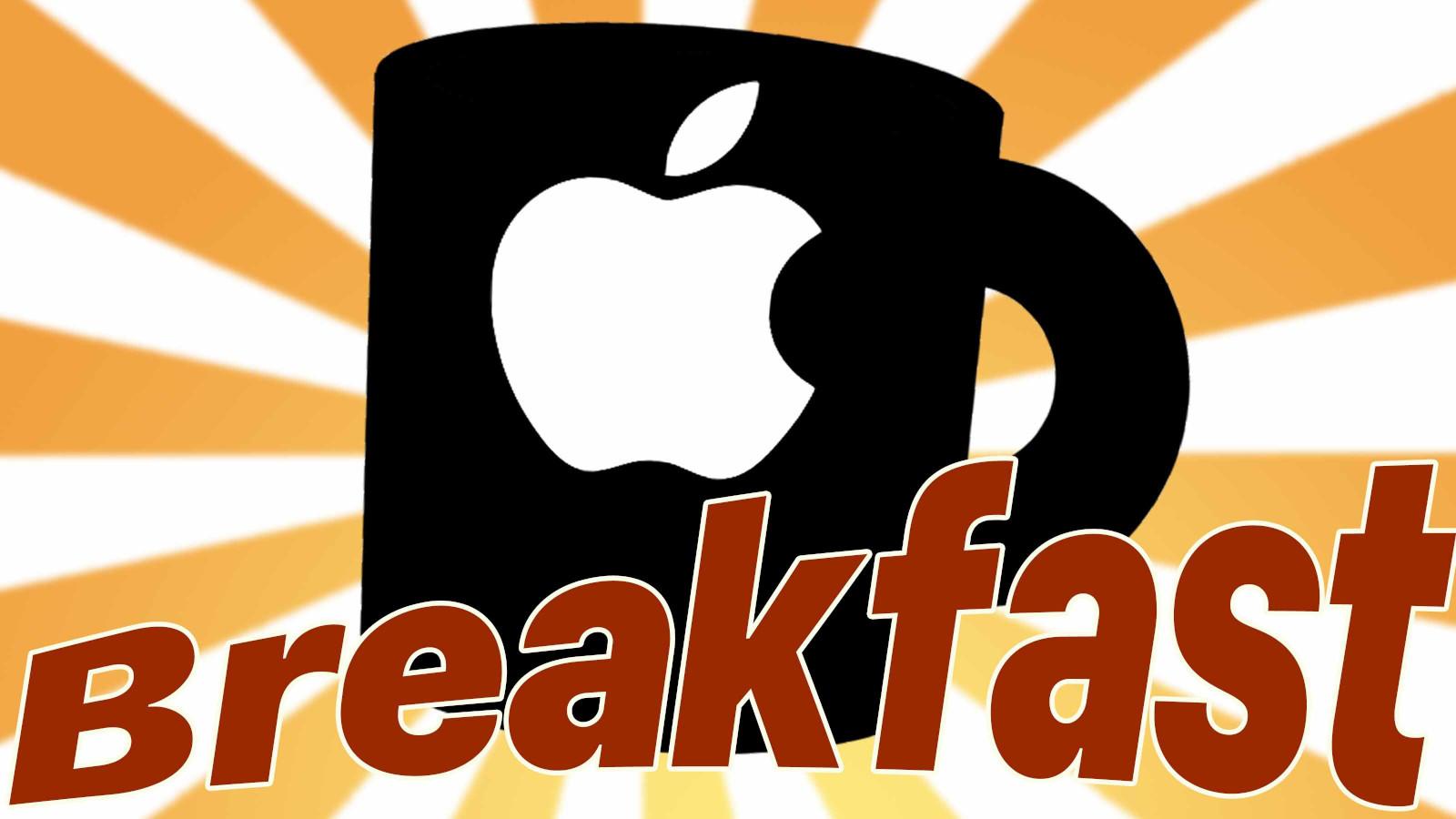Once again, when Apple loses, we all pay the price
Welcome to our weekly Apple Breakfast column, which includes all the Apple news you missed last week in one handy summary. We call it Apple Breakfast because we think it pairs really well with a cup of coffee or tea, but it’s cool if you want to read it during lunch or dinner hours as […]

Welcome to our weekly Apple Breakfast column, which includes all the Apple news you missed last week in one handy summary. We call it Apple Breakfast because we think it pairs really well with a cup of coffee or tea, but it’s cool if you want to read it during lunch or dinner hours as well.
It was not me
We all know that Apple doesn’t like being told what to do. The company’s first instinct, when accused of misconduct, is to deny (“You’re wrong”), apply pressure, or simply ignore the problem and hope it goes away. In this respect, it may not be so different from the average multinational corporation.
But where Apple really excels is in the art of tactical capitulation. The company will fight tooth and nail for years against PR pressure or regulatory oversight, but when it finally relents, you can be sure it will do so at a time and on terms astutely calculated to produce a maximum benefit at minimum cost. Last week, for example, we learned that the EU won’t force Apple to open iMessage to Android users… a move that, coincidentally, follows the company’s tactful announcement in November of his intention to do so voluntarily. approximately the same, in its time, supporting the cross-platform RCS standard. Similarly, the company avoided pressure from the Right To Repair movement a few years ago by implementing a self-repair program so unappealing that it seemed destined to fail. Apple is very good at pretending to lose.
But sometimes the most effective tactic is a little less subtle…and more openly hostile. This is where we enter the realm of malicious compliance, where a regulator rules against you so that you follow the letter of their decision in the most unhelpful way possible. Into this category comes last week’s announcement that Apple will disable web apps on the Home screen in iOS 17.4, but only in the EU. The reason for this step back? The EU told Apple it must allow third-party browsers and app stores under the Digital Markets Act, which created alleged security concerns for web apps that would require a “huge amount engineering” to be resolved. Sorry guys, we’d love for you to continue enjoying this feature, but those killjoy EU bureaucrats forced us to get rid of it.
It’s important to recognize here that Apple is making a choice, while pretending that it isn’t. The company wants to convince users that it’s the EU’s fault that web apps are taken down, but the EU simply made a rule; it’s up to Apple to comply. Sure, there may be complications, but it’s not like Apple would have trouble finding a software engineer in the building. It’s one of the most well-resourced companies in the world, and if it wants to fix a problem, it will. It’s just that in this case, sacrificing a relatively minor functionality in a territory is worth portraying the EU as the bad guy, whipping up public opinion against the idea of opening the walled garden of iOS and to push the idea further. this side loading is fundamentally unsafe.
(It’s probably worth mentioning that we’ve been here before: Last summer, Apple responded to proposed security legislation in the United Kingdom by threatening to shut down its FaceTime and iMessage services in that country. But Apple seems to have perfected his tactic since then; removing one feature is more realistic than removing two extremely popular email services.)
It remains to be seen whether users will buy all of this. Lonely X/Twitter user responds to The Verge cover story dutifully argued that EU lawmakers “got what they wanted,” but most others seemed unimpressed with Apple’s game, suggesting the EU should get tougher or (as usual) that users should switch to Android. Cupertino’s focus on security is admirable in many ways, but there is one scaremongering aspect that is not helpful and may no longer be as effective in achieving the company’s goals: every sinister summons of cybercriminals sniggers, if not accompanied by real cybercrime, waters down the message a little more. Nor does it seem wise to provoke the EU by treating it like a boring school teacher with an impractical new rule.
But with the walled garden collapsing and digital vultures circling, Apple could be getting desperate. Exercising full control of its platforms has proven extremely lucrative, and the company isn’t going down without a fight, even if officially, that fight is already over.
Foundry
Trending: Featured News
If the Mac can handle the “risk” of alternative app storeswhy not the iPhone?
Vision Pro is Apple’s the strangest and riskiest product years from now – and it shouldn’t stop there.
Podcast of the week
In this episode of the Macworld Podcast, we continue our discussion about Apple Vision Pro–whether it’s worth your money and its place in the Apple ecosystem.
You can watch every episode of the Macworld podcast on Spotify, Sound cloudthe Podcasts app or our own site.
Reviews corner
The rumor mill
tvOS 17.4 beta reveals Apple is about to release a HomePod with a screen.
Report: the next Apple A18 and M4 chips to gain enhanced AI capabilities.
Apple buys iWork.ai domain as proof of a big boost for AI mounted.
iOS 18 to mimic Vision Pro’s visionOS interface, a summary report claims.
Software updates, bugs and issues
‘Ghost Touch’ display issue affecting some Latest generation Apple Watches.
A 10-year-old bug that still causes headaches Mac Audiophiles.
Apple releases visionOS 1.0.3 with option for reset your Vision Pro.
iOS 17.4 beta 2 is now available.
And with that, we’re done for this week’s apple breakfast. If you would like to receive regular summaries, subscribe to our newsletters. You can also follow us on Facebook, Threads or Twitter to discuss the latest Apple news. See you next Monday and stay Appley.














